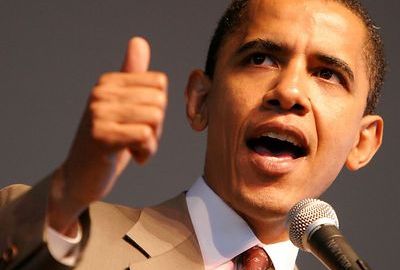Does President Obama Have a Mandate?

Now that the long presidential campaign is over and a winner has emerged, the blogosphere is asking the question we hear every four years at this time: does the president-elect have a mandate to govern?
At the Economist today, I point out how empty the debate is. But as vacuous as the discussion is proving to be, everybody seems to want to get a word in.
Here is political scientist Jamie Chandler offering some historical context on second-term mandates:
Presidential mandates are rare, and second term ones nonexistent. Only Presidents Franklin Roosevelt and Ronald Reagan were able to claim and exercise theirs, but just during their first term honeymoons. President George Bush tried to claim one after his 2004 re-election, but that did nothing to help him realize Social Security privatization, tax-code simplification, and medical liability reform. President Barack Obama’s re-election will yield no positive relational changes with Republicans.
And here is Jonathan Cohn insisting on exactly the opposite:
Romney and the Republicans had turned the election into a referendum on liberalism—not just the liberalism of Obama, but also the liberalism of Johnson and Kennedy, of Truman and Roosevelt. They proposed massive, fundamental changes to the welfare state and wholesale rollbacks of women’s rights, and challenged the philosophy behind such policies—the whole idea that governments should act to protect vulnerable groups and to guarantee economic security.
It was a huge gambit. And it failed.
Insofar as this argument suggests that a mandate can be detected in terms of what the voters rejected, the logic is curious. Yes, the Romney/Ryan ticket’s Ayn Randian individualist undertones did not carry the day for them, but this doesn’t necessarily mean that the Obama/Biden philosophy of government won the strong and unambiguous support of a substantial majority of American voters. Nor does it mean that a narrow Romney victory would have heralded the dawn of the greed-is-good-themed “Atlas Shrugged” as the new political bible of American politics.
The trouble with finding “mandates” is the challenge of divining the collective mindset of a massive, diverse electorate that spans a continent. Nobody, not even divine Nate Silver, can do that. All we know is how many people voted for which candidate and, roughly, from polling data, what some of their policy preferences are. But there is no mechanism for specifying the determining factors in any voter’s decision, let alone the determining factors in every voter’s decision. People vote for candidates for all kinds of reasons, and often these have more to do with party loyalty or perceptions of personal character than policy.
So debating whether the president has a mandate to pursue specific legislative policies is probably not worth the effort, or the time. As the postmodernists like to say, there is no “there” there. It’s just wholesale politics ahead.
Follow Steven Mazie on Twitter: @stevenmazie





